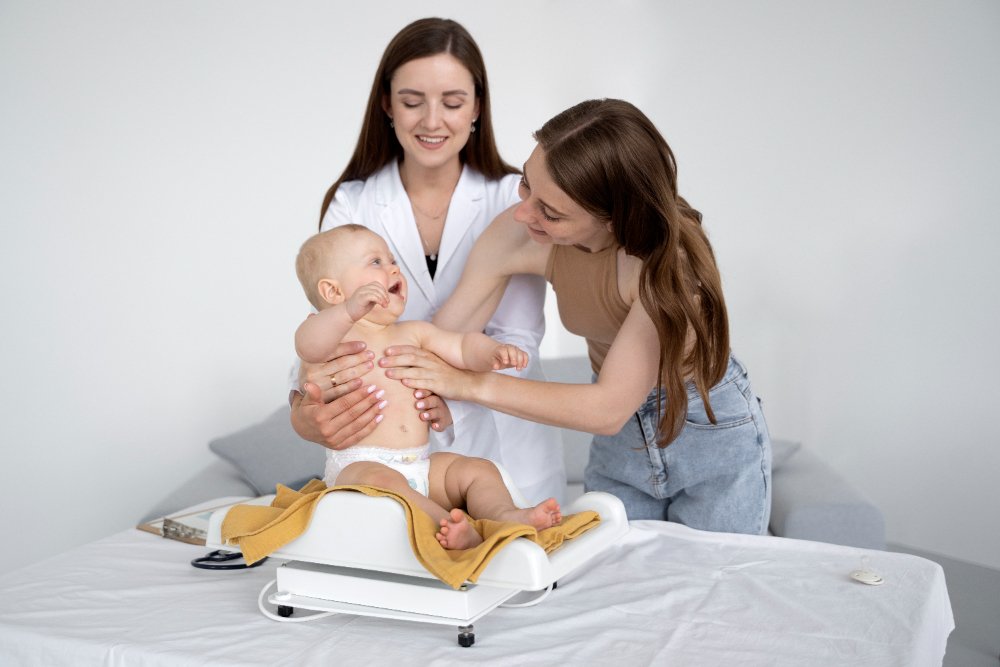
The journey of motherhood is a beautiful yet challenging experience, especially during the postnatal phase. Ayurveda says that the mother’s physical, mental, and emotional recovery depends on this 42-day postpartum phase, called “Sutika Kala.” Ayurvedic hospitals offer a holistic approach to postnatal care, blending traditional wisdom with modern facilities to ensure a smooth transition into motherhood. Here’s what you can expect during postnatal care at an Ayurvedic hospital.
-
Comprehensive Postnatal Assessment
Upon admission, the first step in an Ayurvedic hospital is a thorough assessment by a qualified Ayurvedic practitioner. This evaluation considers your Prakriti (body constitution), Vikriti (current state of imbalance), and specific postpartum conditions. By understanding your unique needs, the practitioner designs a personalized care plan to support recovery, enhance lactation, and promote overall well-being.
-
Customized Diet Plans
Ayurvedic postpartum care is based on nutrition. Ayurvedic hospitals emphasize a Satvic diet tailored to the mother’s needs. The focus is on easily digestible, warm, and nourishing foods that aid in recovery and boost lactation. Key components often include:
- Herbal decoctions like Jeerakarishtam (cumin-based tonic) to enhance digestion.
- Medicinal ghee preparations like Shatavari ghee for hormonal balance and lactation.
- Special postpartum meals rich in spices like turmeric, fenugreek, and ajwain to cleanse the uterus and improve metabolism.
-
Abhyanga (Oil Massage)
Using herbal oils to massage the entire body, Abhyanga is a hallmark of Ayurvedic postpartum care. These massages help:
- Relieve body aches and joint pain.
- Improve blood circulation and lymphatic drainage.
- Promote relaxation and mental well-being.
At an Ayurvedic hospital, trained therapists perform these massages using oils like Bala Ashwagandha Thailam or Dhanwantharam Thailam, chosen based on your condition.
-
Swedana (Herbal Steam Therapy)
After Abhyanga, Swedana therapy follows. This involves herbal steam baths that:
- Eliminate toxins from the body.
- Relax sore muscles.
- Rejuvenate the skin and tissues.
Swedana sessions are designed to be gentle, ensuring that new mothers feel comfortable and energized.
-
Postpartum Detoxification
To cleanse the body of impurities accumulated during pregnancy, Ayurvedic hospitals often include mild detox therapies. Unlike intense detox programs, postnatal detoxification focuses on:
- Balancing the doshas (Vata, Pitta, Kapha).
- Restoring digestive fire (Agni).
- Replenishing energy levels.
Therapies such as Vasti (medicated enema) or mild herbal laxatives may be administered under expert supervision.
-
Uterine Care and Healing
Postnatal recovery involves special attention to the uterus. Ayurvedic hospitals use herbal formulations like Dashamoola and Ashwagandha to:
- Strengthen uterine muscles.
- Reduce postpartum bleeding.
- Promote hormonal balance for a faster recovery.
-
Mental Health Support
Ayurveda recognizes the emotional challenges of the postnatal period, such as postpartum depression and anxiety. Ayurvedic hospitals provide mental health support through:
- Shirodhara: A calming therapy where warm herbal oils are poured over the forehead to reduce stress and improve sleep.
- Meditation and Pranayama: Breathing exercises and mindfulness practices to enhance mental clarity and relaxation.
-
Support for Breastfeeding
Lactation is an integral part of postnatal care. Ayurvedic hospitals offer:
- Lactation-boosting herbs: Shatavari, fennel, and fenugreek are commonly used.
- Breast care therapies: External applications of herbal pastes and oils to prevent issues like mastitis.
- Guidance on positioning and techniques to ensure successful breastfeeding.
-
Postnatal Yoga and Exercise
Physical activity is introduced gradually in the form of postnatal yoga and gentle exercises. These are tailored to:
- Strengthen the pelvic floor.
- Restore core stability.
- Relieve back pain and improve posture.
Yoga sessions are often guided by experts to ensure safe and effective practice.
-
Baby Care and Bonding
Many Ayurvedic hospitals extend their care to newborns as well, offering:
- Infant massages with gentle oils to improve circulation and immunity.
- Guidance on Ayurvedic remedies for common baby issues like colic or skin rashes.
- Tips for mother-child bonding through shared therapies and practices.
-
Tailored Herbal Medicines
Postnatal care often involves herbal supplements that promote recovery and vitality. These medicines may include:
- Ashwagandha for energy and stress relief.
- Dashamoola to balance Vata dosha and reduce inflammation.
- Guduchi for boosting immunity.
-
Rest and Relaxation
Rest is crucial during the postpartum period, according to Ayurvedic hospitals. Private rooms, serene environments, and round-the-clock care allow mothers to relax and focus on recovery.
The Ayurvedic Approach: A Holistic Experience
Unlike conventional care, Ayurvedic postnatal care addresses not just the physical aspects but also the emotional and spiritual well-being of new mothers. This comprehensive approach ensures long-term health benefits for both the mother and baby.
Whether you’re looking for a natural way to heal after childbirth or seeking a nurturing environment to start your motherhood journey, Ayurvedic hospitals offer a unique blend of tradition and care. Their holistic therapies ensure that you emerge stronger, healthier, and ready to embrace the joys of motherhood.




